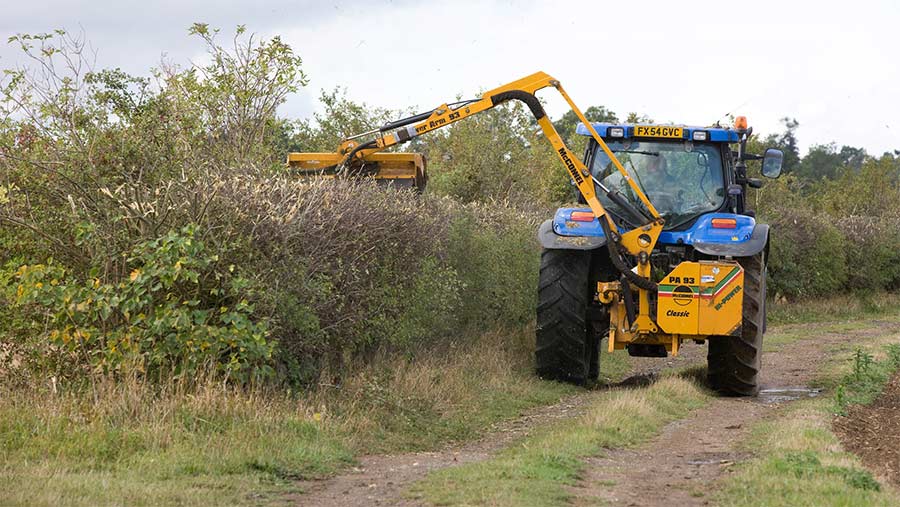Hedgecutting contractor fears for future amid Defra rules
 © Tim Scrivener
© Tim Scrivener A Northamptonshire farm contractor has urged Defra to look again at “ill-advised” restrictions which prevent hedgecutting on farms throughout August.
The window for trimming and cutting hedges with machines closed on 1 March across the UK and it will not reopen until 1 September due to the bird nesting season.
During this six-month period, no hedges are allowed to be cut with machinery on farms unless they are obstructing pedestrians on footpaths or traffic on roads.
See also: Rule reminder: Don’t risk breaching hedgecutting regulations
In 2015, Defra introduced new legislation which made it an offence to cut hedges on farmland between 1 March and the end of August (previously it was end of July).
This aimed to comply with the EU Bird Directive and “to protect nesting birds on farms”.
The Defra hedgecutting ban only affects agriculture, while domestic homeowners or the forestry/tree surgery industries are free to cut hedges and trees year-round.
The ban also does not cover the demolition of structures which may contain nesting birds.
Robert Rutt, a hedge and grass cutting contractor, based in Northants, said the area he cuts hedges on has dropped from about 2,400ha 10 years ago to about 400ha this year.
“The six-month window is crippling my hedgecutting income,” said Mr Rutt. “We are unable to do any work from now until the 1 September start time.
“Former Defra secretary George Eustice pledged to review the government’s hedgecutting policy post-Brexit. But this hasn’t happened.
“Meanwhile, hundreds of professional, self-employed contractors (one-man bands) who specialise in cutting and trimming hedges are very frustrated about not being able to earn an income.”
Hedges left to grow
Mr Rutt said current Defra policy was to pay farmers and landowners to leave their hedges to grow upwards and outwards. But he questions whether this is, or ever has been, the right policy.
“A well-shaped and managed hedge cut by a flail machine when in leaf is a 100% perfect habitat for nesting birds,” he added.
“The tightness of the hedge stops raptors from pushing their feet through and grabbing nesting birds from nests. It also stops cats from gaining entry.”
However, conservationists including the RSPB insist that some bird species are still nesting in hedges in August and, therefore, the ban should remain in place.
A Defra spokesperson said: “Hedgerows are important ecological building blocks across our landscapes. Our new farming schemes will continue to invest in incentives for maintenance and planting of hedgerows across the country.
“Farmers who receive direct payments must comply with the hedgerow protections, including not cutting or trimming hedgerows during bird nesting and rearing season. This is essential to help protect the hedgerow and the wildlife within it, contributing to our target on halting the decline in species abundance by 2030.”
